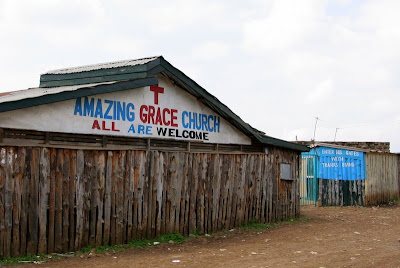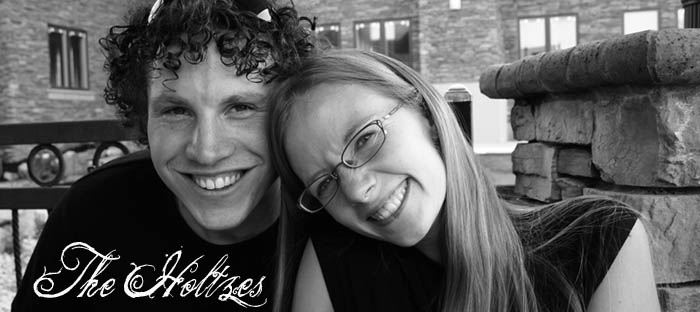Pastor Mugambi drove us about an hour outside of Nairobi to Kisarian, a shanty town where he started Amazing Grace Church.

He and his wife have also started a school, though they only have pre-school through grade 2 right now. He told us he is praying for God to provide the funds to provide grade 3 and so on for the students they now serve. A man of faith, his face would light up as he told us one story after another of God’s faithfulness to him. When he first felt called to reach out to the Masai, he was given a bicycle to make the trek to the remote village where the Masai live. He would ride his bike over 25 miles of hilly terrain and poor roads just to reach them and share with them the good news of God’s love for them. He had been trekking out there a few times a week for a year when his bicycle was stolen. He prayed for God to provide another means of transportation, and after 6 months, he was given a car! Now, he travels out there often to meet with a small group of Christians, in addition to his commitment to the church in Kisarian, and the school he oversees.





When we arrived, we were eagerly greeted by the Masai women who mostly make up the church. When we say church, we literally mean the people and not the building as they meet outside under the shade of an acacia tree. During most days, the men are all out with the cattle, so we only met one older man. John was asked to preach, right there on the spot and had to come up with something to share. Thankfully there was a translator, though we are unsure how much was actually communicated through the large cultural differences present between our world and theirs. Standing under that tree the sun blasting down on the ground those differences seemed vast as we looked through our sunglasses at a people who live all day under relentless heat. We also had the opportunity to sing with them, though we could really only clap, and try to pic up on some of the foreign words.
Singing with the Masai from Clarissa Holtz on Vimeo.
After singing with them, they shared with us some of the things they had made to sell, which have become one of their primary means of income, since a major drought, which led to the death of many of their cattle last year.

They also invited us into their home, a traditional mud/manure hut with rudimentary beds and a cooking area, where they served us milk from a gourd. Only a few of us partook, the rest decided it might be better to possibly offend our hosts than to carry home some strange illness. We feared drinking unpasteurized milk that had been sitting in a gourd for who knows how long, having come from potentially sick cows.



 The Masai are often portrayed as an edifice of tribal culture, unchanged by the western world. They seem to represent the quintessential African tribe, with their brightly colored blankets, beaded necklaces and simple nomadic life style. However, there is a darker side to this romanticized picture.
The Masai are often portrayed as an edifice of tribal culture, unchanged by the western world. They seem to represent the quintessential African tribe, with their brightly colored blankets, beaded necklaces and simple nomadic life style. However, there is a darker side to this romanticized picture.It was not until we left the village that we learned some new facts about the Masai. While there are aspects of every culture that are good and beautiful, there are also aspects of every culture that need to be redeemed. One of the horrifying things we learned about the Masai is that 93% of them practice female genital mutilation and will marry their daughters off as young as 7 or 8 years old to whatever man is willing to pay the most cattle and goats. Men will purchase as many wives as they can afford, but then each wife is expected to construct her own mud hut without any help from the man; if she is troublesome to him in any way, he beats her. If she gives birth to a daughter, even as an infant, business deals are made to sell her off to her future husband. Boys are raised to take care of the cattle, and as soon as the boy is old enough to herd the cattle on his own, then the father gives the responsibility over to his son so he can sit in the shade with the other men and drink.






























